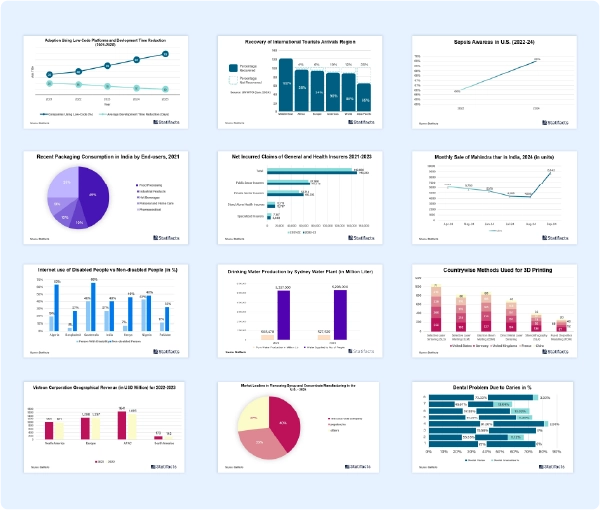The U.S. clinical trials support services market size is calculated at USD 10.19 billion in 2024 and is predicted to reach around USD 22.22 billion by 2034, expanding at a CAGR of 8.11% from 2024 to 2034.
U.S. Clinical Trials Support Services Market Report Highlights
- The basis of phases segment, the market includes phase I, phase II, phase III & phase IV.In 2024, the phase III segment dominated the market, accounting for a revenue share of 48.43%.
- The phase I segment is anticipated to register the fastest CAGR of 9.17% during the forecast period.
- The basis of phases segment, the market includes phase I, phase II, phase III & phase IV.In 2024, the phase III segment dominated the market, accounting for a revenue share of 50.43%.
- The phase I segment is anticipated to register the fastest CAGR of 9.18% during the forecast period.
- The Clinical trial site management accounted for the largest market share of 42.73% in 2024.
- The pharmaceutical & biopharmaceutical companies' segment dominated the market with the largest revenue share of 61.80% in 2024.
- The medical device companies’ segment is anticipated to show lucrative growth CAGR 7.01% during the forecast period.
The U.S. clinical trials support services market is expanding due to the rising R&D investment and growing adoption of new technologies. The increasing prevalence of chronic, infectious, and tropical diseases in emerging countries is creating an unmet need for developing novel drugs for treatment, which demands conducting clinical trials. Clinical trial support services, such as assay design and clinical testing, are quite useful in the event of a drug. It also covers tasks such as strengthening clinical test locations, securing and storing research medicines, drug dosage calculations, and kit handling.
Pharmaceutical groups are turning to specialized service carriers to manage the increasing complexity of trials. With improvements in medical technological know-how and the upward push of personalized remedies, trials are becoming extra complicated, often regarding complicated protocols and regulatory requirements.
Providers of clinical trial data services understand the unique and complex clinical data requirements of pharmaceutical and biotechnology companies for delivering cost-effective data management services. These companies manage increasingly complex clinical data sets while complying with all relevant regulatory standards. They help companies scale and expedite timelines with more data accessibility.
The U.S. population presents a broad spectrum of disease profiles, with emerging countries showing even greater diversity. This diversity is anticipated to drive clinical trials for new or rare conditions. More patients with specific diseases encourage biopharmaceutical companies to increase investments in clinical trials for targeted disease segments. Moreover, population enables easier patient recruitment and accelerates the trial process as AI has changed the decision-making dynamics in drug development. Initially, deciding on the viability of a drug pathway took years. But now, such decisions are being made in weeks.
Technology-enabled clinical trial solutions enable faster patient recruitment, better retention, patient data capture, improved data access, and enhanced patient and trial management. Current technologies such as eCOA, EDC systems, and electronic case report forms (eCRF) can enhance patients’ clinical trial experiences and minimize data management efforts. The National Institutes of Health (NIH) has given a new policy to raise the availability of information about clinical trials via ClinicalTrials.gov, a publicly accessible database functioned by the National Library of Medicine (NLM), part of the NIH.
- For the first time, WHO recommends national health authorities, funders, regulatory authorities, and others on best facilitating clinical trials to produce proof of health interventions. It marked challenges such as poor trial design, insufficient infrastructure, limited diversity of participants, and bureaucratic efficiencies, which cost time, money, and lives.
The Food and Drug Administration accepted nivolumab and hyaluronidase-nvhy for subcutaneous injection across approved adults, with solid tumor nivolumab indications as monotherapy and maintenance.
Thus, in 2024, it is observed that companies will take that step forward: using AI to forecast which participants will benefit from the trial and adhere to its protocol. This can enhance the quality of participant selection, contributing to more successful outcomes.
Published by
Laxmi Narayan

